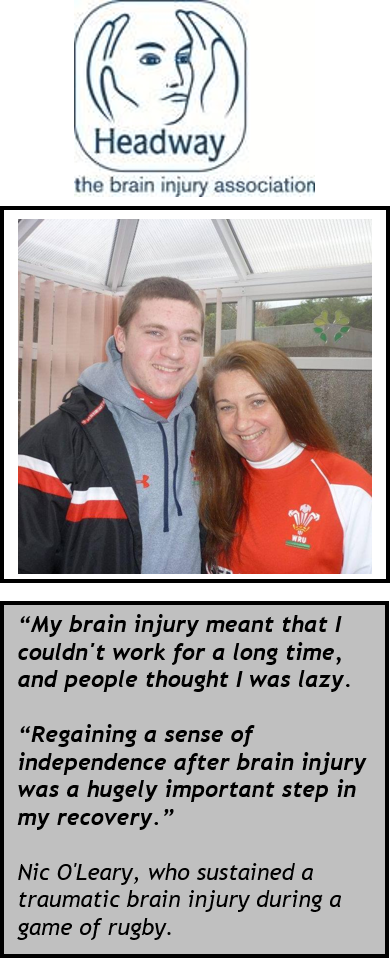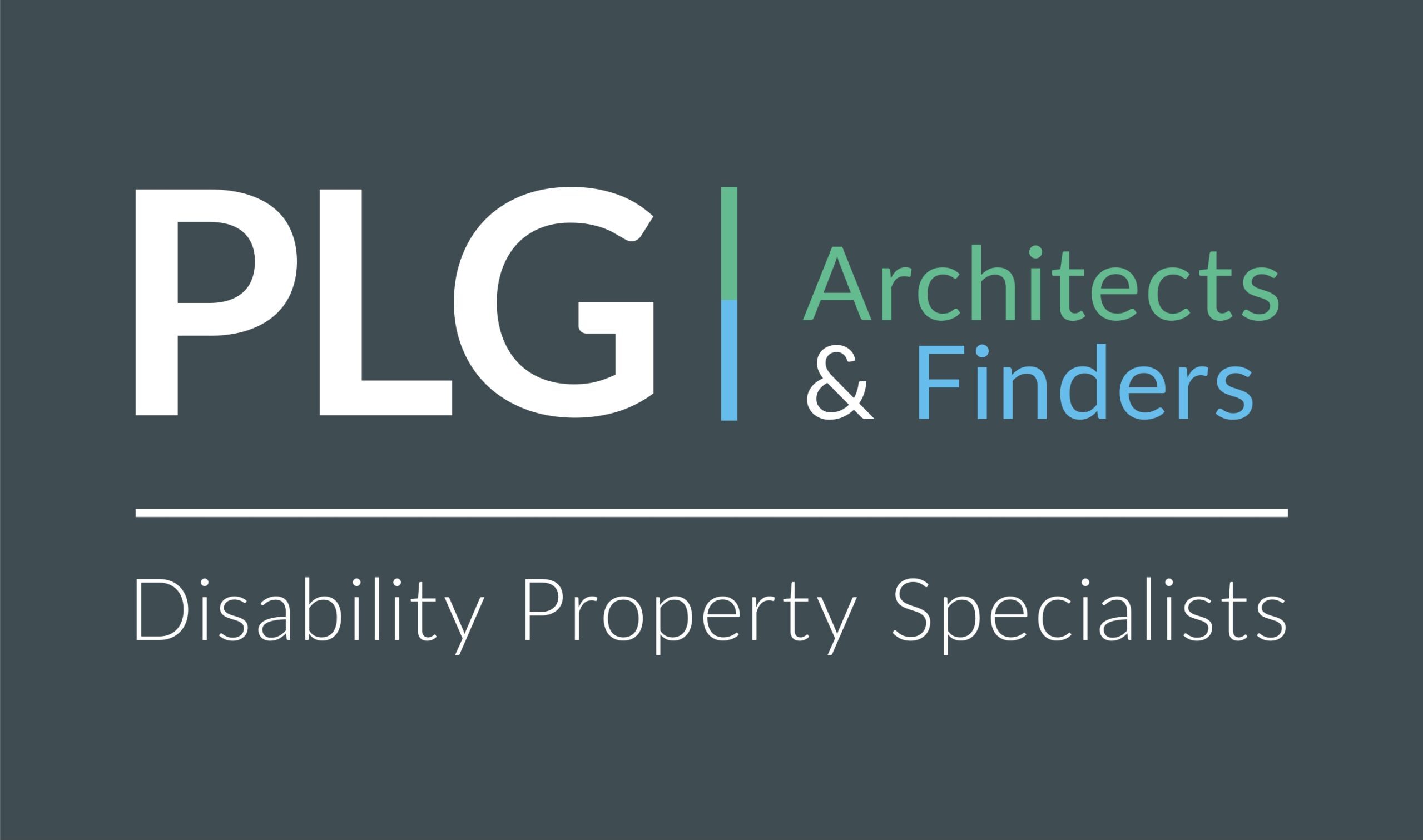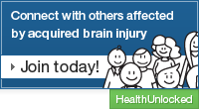Headway – the brain injury association, answers key questions about Brain Injury
What is brain injury and how can Headway help?

Brain injury can challenge every aspect of your life – walking, talking, thinking and feeling – with effects that can be severe, lifelong, and strip you of
your independence. It can mean losing both the life you once lived and the person you once were.
However, at Headway we know that with the right support, at the right time, there can be life after brain injury. That is why the UK-wide charity – through its network of more than 130 groups and branches across the country – provides support, services and information to brain injury survivors, their families and carers, as well as to professionals in the health and legal fields.
An Acquired Brain Injury (ABI) is an injury caused to the brain since birth. There are many possible causes, including falls, road accidents or assaults. These are known as Traumatic Brain Injuries (TBI). However, there are a number of other causes of ABI, including tumour, stroke or the brain being starved of oxygen (for example, following a heart attack).
Effects of brain injury
The effects of a brain injury can be wide ranging and depend on a number of factors such as the type, location and severity. As every individual’s brain injury is unique, the consequences can widely vary from person to person and can challenge every aspect of daily life – walking, talking, thinking and feeling. The impact can severe and, in some cases, lifelong.
For many, brain injury can also cause changes in their behaviour and emotions, with these hidden effects often proving just as challenging as physical ones. For example, imagine if you were no longer able to remember how to tie your own shoe laces, or the frustration you may feel if, in adulthood, you suddenly went from living alone to needing daily support from your parents to make a cup of tea or use the toilet.
Although we all think ‘it’ll never happen to me’, a brain injury can affect anyone at any time. When it does, we’re here to help.
Headway staff and volunteers work together and use insight and care to help survivors regain a sense of independence and quality of life through a wide range of services, including rehabilitation programmes, carer support, social re-integration, community outreach and respite care.
How important is regaining your independence after brain injury?
As many Headway service users will attest, loss of basic skills once taken for granted – such as washing, eating independently, or even remembering to turn off the oven – can create wider problems that may force a person to move back in with family or into a care facility for support.
Being stripped of one’s ability to live independently can sometimes lead to feelings of anxiety, depression, and other effects that put extra strain upon a person’s recovery.
While many individuals may need carer support for the rest of their lives, regaining a degree of independence after brain injury can therefore be a key benchmark in a person’s recovery. Whether it is helping somebody to re-learn how to stand up unaided or signposting them to services that will enable them finally be able to live independently once again, Headway is here to help.
In addition to local Headway support services, the charity also provides a range of national frontline services to help those affected by brain injury rebuild their lives. These include:
- Freephone nurse-led helpline (0808 800 2244, helpline@headway.org.uk);
- Emergency fund to assist people dealing with the financial implications in the immediate aftermath of a brain injury;
- Headway Acute Trauma Support (HATS) nurses to support families whose loved ones are in the acute stage of care following brain injury;
- a comprehensive website containing information and factsheets on all aspects of brain injury (headway.org.uk);
- Award-winning range of downloadable booklets and publications designed to help people understand and cope with the effects of brain injury;
Disabled Facilities Grant
People affected by brain injury can also apply to their local council for a Disabled Facilities Grant, which is designed to help adapt your home to make it suitable for a disabled person. To find out if you qualify and how to apply for support, please visit https://www.gov.uk/apply-disabled-facilities-grant
Whether you are family member, carer or a survivor of brain injury, you can find out more about what support is available by visiting www.headway.org.uk; contact the helpline on 0808 800 2244 or helpline@headway.org.uk; or click on the logos below to join our online communities:


